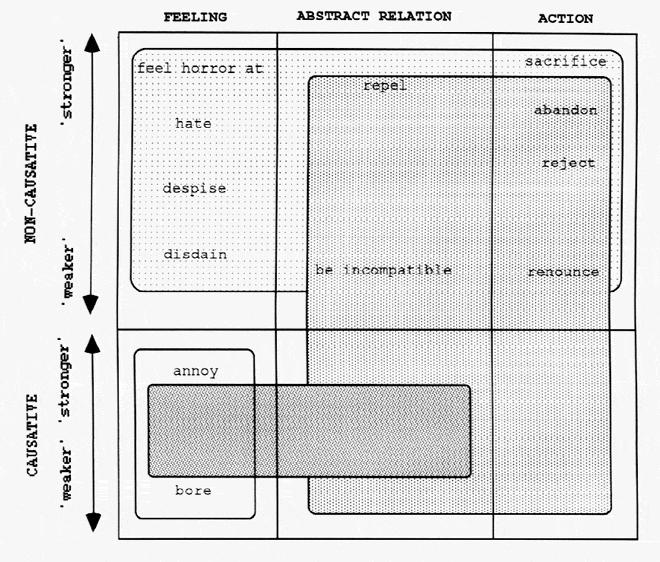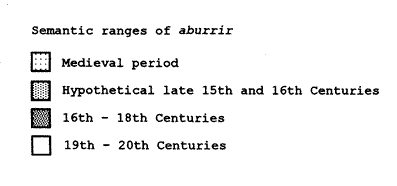October 24, 2004
Horror and boredom in Castile
Once upon a time, Language Log was #1 for stupid ideas. On Google, that is -- where else? Now, we've been outpaced in that category by 18 other sites. Sic transit gloria googli. And if you ask Google about "boring", we're not anywhere in the top 100, despite my comments on "after boring of the task" (via Language Hat), and my etymological follow-up on the history of boring, tiring and wearying. I guess the competition is stiffer in the area of boredom than in the area of stupidity.
Of course, our goal is to have fun, not to compete in the rat race for page rank. So this is just a lead-in to telling you about a fascinating paper (brought to my attention by Mike Escárzaga): Christopher J. Pountain, "The Castilian reflexes of ABHORRERE/ABHORRESCERE: a case-study in valency".
Here's the abstract:
The purpose of this paper is to study the factors involved in the changing valency of the reflexes of ABHORRERE/ABHORRESCERE in Castilian, ie aborrir~aburrir and aborre(s)cer. I use the term 'valency' in a more restricted sense than is sometimes usual[1] to refer especially to properties of 'voice' and 'transitivity', although these properties in their turn relate to a number of combinatorial features of verbs. My main contention will be that while the semantic history of aborrir~aburrir in particular may be understood in simple terms as comprising a change in valency, the factors which bring about that change are extremely complex, involving a detailed consideration of the position of these verbs within the morphological, syntactic and semantic structures of Castilian.
The basic observation is that Latin abhorrere started out meaning "to shrink back from, have an aversion for, shudder at, abhor", but one of the Spanish descendents, aburrir, wound up meaning "to bore". So not only did the meaning change, but also the "valency" (in the sense of which verbal arguments go where). "I abhor you" turned into "you bore me".
But the space is more complicated:

and so is the history:

Read the whole thing.
Posted by Mark Liberman at October 24, 2004 08:02 AM